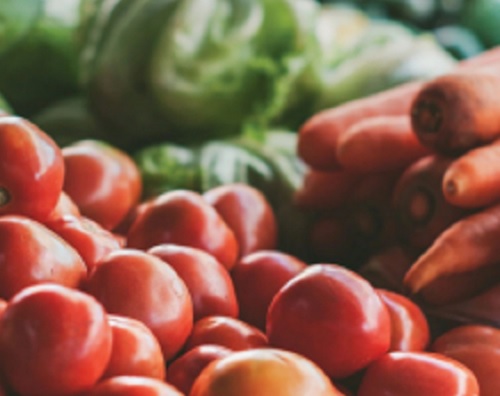
Stakeholders blame absence of regulation to facilitate export of high quality horticulture products
Kampala, Uganda | PATRICIA AKANKWATSA | Uganda’s horticulture sector remains one of the top earners for the East African nation but the recent European Union (EU) warning over quality related issues could hurt the sector if it is not addressed.
Paul Mwambu, the Commissioner for Crop Inspection and Certification at the Ministry of Agriculture, Animal Industry and Fisheries, told The Independent in an interview that most of the country’s horticulture products are falling short of the EU recommended standards and thus risk being denied access to the 27-nation market.
He said EU’s concerns revolve around presence of pests, poor storage, packaging and high levels of unwanted pesticide residues.
Uganda’s horticulture exports mainly to the EU have been growing over the past years, with the flower export volumes increasing from 6,047 million tonnes worth US$52.99million in the financial year 2012/13 to 7,191 million tonnes worth US$61.88million.
Similarly, the volume of vegetable and fruit exports have increased from 16.5million tonnes worth US$16million to 135.2 million tonnes worth US$45million during the same period under review.
This is the second time that the EU is issuing a warning over horticultural exports in three years. In 2015, several EU member countries raised a red flag on Ugandan products due to poor standards and excessive chemicals.
This prompted the Minister for Trade, Industry and Cooperatives, Amelia Kyambadde, to ban a section of horticultural products including hot pepper for a month to address the issue.
This was followed up with the setting up a technical team to train Ugandan farmers on quality compliance and pest control.
Exporters speak out
Benon Biziirah, the quality manager of FFP Uganda Ltd, which exports mainly hot pepper to the EU told The Independent that government’s failure to enact stringent regulations on who and how to export is to blame for the persistence of poor quality products and exports.
“You hear that an individual is exporting a fresh fruit and vegetable but you can’t even locate their address,” he said. “The industry is basically too open, many exporters are not registered.”
He said the high costs for testing residue levels in the crops has also contributed to the mess.
James Kanyije, the CEO of KK Foods, an exporter of fresh fruits and vegetables, re-echoed Biziirah’s view saying the government is yet to come up with strong regulation.
“We have weak authorities. They know the problem but they not tackling it,” he said.
He said the EU wrote to the Ugandan government giving it a number of options but the government has not put any of the options in place.
What needs to be done?
Going forward, Biziirah says the government should give exporters loans to enable them afford costs of laboratory testing.
But Henry Kimera, the team leader at the Consumer Education Trust, wants parliament to pass new laws that among others will ensure production of high quality agricultural products through registration of all agro-chemical producing companies, food safety and consumer protection.
He said exporting low quality horticulture products has been worsened as traders shun buying their products from organised farmers in favour of middle men.
“These Bills have been there for a long time but are not being passed in parliament,” he said.
“We normally tell producers and farmers to come and report about counterfeit products but how can you report to a system and institution that is weak?” he wondered.
Anna Anyango of Bukalasa, the head of Department Human Nutrition at Bukalasa Agricultural College said the government needs to create awareness especially about danger of poor quality as well as carry out research on high quality agricultural products.
Some of the EU requirements for horticulture export
- Fruits and vegetables exported to the EU must comply with the European legislation on plant health. The EU has laid down phytosanitary requirements to prevent the introduction and spread of harmful organisms (pests) to plants and plant products in Europe. These requirements are managed by the competent food safety authorities in the importing and exporting countries.
- The European legislation sets general and specific marketing standards for the minimum quality and minimum maturity of all fresh fruits and vegetables. A market standard determines the characteristics of “Extra class”, “Class I” and “Class II” products, the different size codes and the allowed tolerances in quality size. The sizes vary between different European markets but the quality is generally, “Extra class” or Class I.
- Packaging marketed within Europe must comply with the general requirements which aim at protecting the environment, as well as with the specific provisions designed to prevent any risk to the health of the consumers. The packaging must protect the product from contamination, leakage, and dehydration.
- To avoid health and environmental risks, the EU has set maximum residue levels for pesticides. Products containing more pesticides than allowed will be withdrawn from the European market.
- The EU has set limits for several contaminants. Contaminants are substances that have not been added to food intentionally but may be present as a result of various stages of its production, packaging, transportation and holding. For most fresh fruits and vegetables, the limit for lead contamination is 01.10mg/kg.
 The Independent Uganda: You get the Truth we Pay the Price
The Independent Uganda: You get the Truth we Pay the Price



“For most fresh fruits and vegetables, the limit for lead contamination is 01.10mg/kg”.
Did you mean “Pb = 0.1 mg/kg” or “Pb = 1.1 mg/kg”?